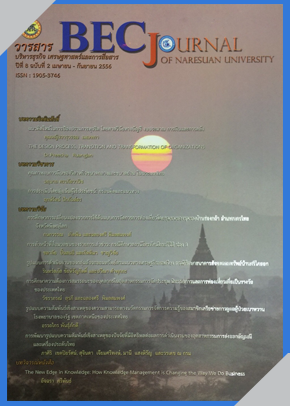การประเมินโดยมุ่งเน้นผู้ใช้ประโยชน์: กรอบคิดและแนวทาง
Main Article Content
บทคัดย่อ
การประเมินโดยมุงเนนผูใชประโยชน (UFE) เปนแนวทางการประเมินท ี่มุงเนนการนําผลของการประเมิน สูการใชประโยชนจริง ซึ่งแนวทางการประเมินนี้อาศัยการใชประโยชนของขอคนพบที่เกิดขึ้น โดยใชหลักการแบบ active-reactive-adaptive (การสรางความกระตือรือรน ปฏิกิริยาสัมพันธตอบสนองและการปรับไปสูการ ประยุกตใชท ี่ เหมาะสม) เปนกระบวนการท ี่ อาศัยฐานการมีสวนรวมท ั้ งในสวนของนักประเมิน ผูถูกประเมิน ผูมี สวนไดสวนเสีย และผูใชประโยชนจากผลการประเมิน กระบวนการประเมินจะสรางการเรียนรูและเนนความ เชื่อมั่นในตนเองใหกับผูรวมกระบวนการ เพื่อนําสูผลการประเมินที่มีคุณภาพและการใชผลการประเมินในการ พัฒนาโครงการอยางมีประสิทธิผล
Utilization-Focused Evaluation: The Concept and Approach
The evaluation focusing on the utilizer (UFE) is the up-to-date evaluation that focuses on inducing the results of the evaluation to be used practically. The evaluators play the vital role and apply the active-reactive-adaptive concept. It is the process based on the participation of the assessor, the people who were assessed, the stakeholders, and the people who make use of the assessment. The process of the the assessment creates learning and self-confidence in the participants in order to achieve the quality assessment results.


